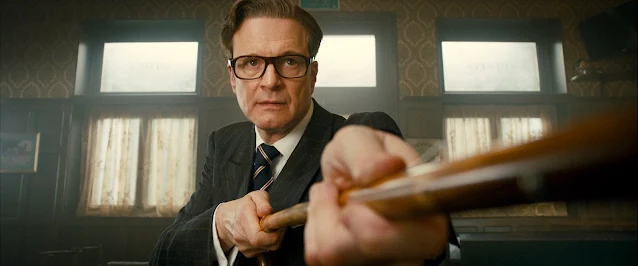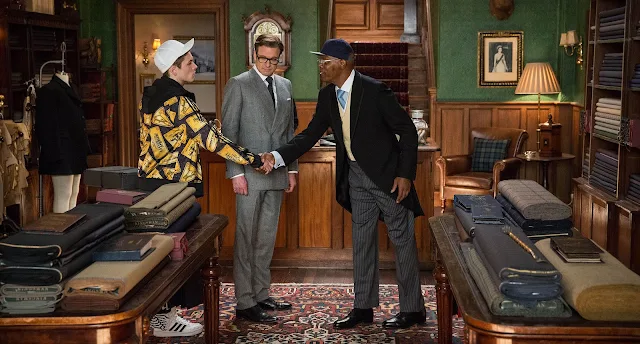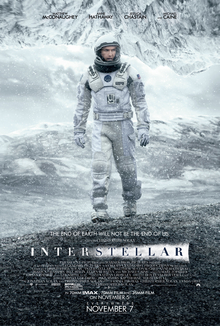A blog formerly known as Bookishness / By Charles Matthews
"Dazzled by so many and such marvelous inventions, the people of Macondo ... became indignant over the living images that the prosperous merchant Bruno Crespi projected in the theater with the lion-head ticket windows, for a character who had died and was buried in one film and for whose misfortune tears had been shed would reappear alive and transformed into an Arab in the next one. The audience, who had paid two cents apiece to share the difficulties of the actors, would not tolerate that outlandish fraud and they broke up the seats. The mayor, at the urging of Bruno Crespi, explained in a proclamation that the cinema was a machine of illusions that did not merit the emotional outbursts of the audience. With that discouraging explanation many ... decided not to return to the movies, considering that they already had too many troubles of their own to weep over the acted-out misfortunes of imaginary beings."--Gabriel García Márquez, One Hundred Years of Solitude
Search This Blog
Monday, February 10, 2025
Kingsman: The Secret Service (Matthew Vaughn, 2014)
Cast: Colin Firth, Taron Egerton, Mark Strong, Samuel L. Jackson, Sofia Boutella, Michael Caine, Fiona Hampton, Samantha Womack, Mark Hamill, Jack Davenport. Screenplay: Jane Goldman, Matthew Vaughn, based on a comic book by Mark Millar and Dave Gibbons. Cinematography: George Richmond. Production design: Paul Kirby. Film editing: Eddie Hamilton, John Harris. Music: Henry Jackman, Matthew Margeson.
Tuesday, July 30, 2024
Noises Off (Peter Bogdanovich, 1992)
Classic farce is all about timing, entrances and exits and gags executed with mechanical precision, which is why a play like Michael Frayn's Noises Off works best on stage, where the only point of view is the audience's. But movies are all about motion and montage and seeing things from different angles, which is why Peter Bogdanovich's Noises Off doesn't achieve its full effect on screen. The funniest scenes in the film are the ones in which the camera stands still for long takes in which the performers can execute the action without being interrupted by a cut or a pan or a zoom. There aren't enough of these moments in the movie. That said, it's still a very funny movie, exactly what you'd expect from comic actors like Carol Burnett and John Ritter, from old pros like Michael Caine and Denholm Elliott, and even from surprises like Christopher Reeve, who fits into the ensemble smoothly. But if you've ever seen Noises Off on stage, you know how much better Frayn's gimmick of deconstructing a farce -- seeing it first in rehearsal, then from backstage, and finally in a disastrous but hilarious botched performance -- works there, where it belongs.
Monday, July 22, 2024
Blood and Wine (Bob Rafelson, 1996)
It takes great acting to steal a movie from Jack Nicholson. In short, it takes Michael Caine. In Blood and Wine, Caine plays Victor, a sleazy ex-con with a hair trigger and a death-bed cough. It's a more physically violent role than we usually see Caine in, and it's startling to see him erupt, slamming into a hapless victim like Henry (Harold Perrineau), who just happens to get caught up in the movie's plot mechanism. Otherwise, Blood and Wine is mostly a forgettable throwback, informed by movies of the 1940s and 1970s, a neo-noir directed by Bob Rafelson, whose directing career was launched with movies starring Nicholson, like Five Easy Pieces (1970) and The King of Marvin Gardens (1972). It's a bleakly cynical movie with no good guys, except that everyone in it looks a little better in comparison with Caine's Victor.
Thursday, July 9, 2020
The Prestige (Christopher Nolan, 2006)
 |
| Michael Caine, Scarlett Johansson, and Hugh Jackman in The Prestige |
With his low-budget feature Following (1998), Christopher Nolan showed a genius for making the preposterous plausible, and he followed it up well with Memento (2000). But although he managed to get his footing again with Inception (2010), after his excursion into the comic book world of Batman, in The Prestige he lost control. It's a dark thriller about dueling illusionists with a sci-fi twist that seems to take to heart Arthur C. Clarke's assertion, "Any sufficiently advanced technology is indistinguishable from magic." As Nolan is careful to show from the outset, stage magic is technology-based, a careful use of low-tech apparatus like trap doors and collapsible cages that can prove accidentally deadly -- or intentionally so, as the sacrifice of several pigeons demonstrates, and the film's plot will exploit. But as the rivalry between illusionists Robert Angier (Hugh Jackman) and Alfred Borden (Christian Bale) heats up, The Prestige wanders into the fancifully futuristic, a sort of molecular cloning technology devised by no less than Nikola Tesla (David Bowie). The problem for me -- if not for the fans who give The Prestige an astonishingly high 8.5 ranking on IMDb -- is that this insertion into the story of a real historical figure, who never crafted anything of the sort, is about as cheesy as turning Abraham Lincoln into a vampire hunter. It undermines the suspension of disbelief we need to appreciate the film's intricate plotting (complicated by Nolan's non-linear narrative technique) and enjoyable performances. I didn't get the exhilaration I expect from a thriller's twists and turns, but instead a kind of numb depression set in.
Sunday, December 23, 2018
The Man Who Would Be King (John Huston, 1975)
 |
| Michael Caine, Christopher Plummer, and Sean Connery in The Man Who Would Be King |
Peachy Carnehan: Michael Caine
Rudyard Kipling: Christopher Plummer
Billy Fish: Saeed Jaffrey
Ootah: Larbi Doghmi
District Commissioner: Jack May
Kafu Selim: Karroom Ben Bouhi
Roxanne: Shakira Caine
Director: John Huston
Screenplay: John Huston, Gladys Hill
Cinematography: Oswald Morris
Production design: Alexandre Trauner
Film editing: Russell Lloyd
Music: Maurice Jarre
John Huston's The Man Who Would Be King is not quite the unalloyed delight I remember it being, but in large part that's because I last saw it well before we became so inextricably embroiled in conflicts in the region where the film's action takes place. We've had our consciousness raised so high about the Middle East and Central Asia that larky adventures, even ones like Rudyard Kipling's story that don't end well for the adventurers, no longer seem so amusing when they take place there. And comic natives like Ootah, religious fanatics like Kafu Selim, or even collaborators with the West like Billy Fish, feel like distasteful stereotypes. As I've said about another film drawn from a Kipling source, George Stevens's Gunga Din (1939), "I have to swallow a lot that I object to when I admit that I still like" The Man Who Would Be King. Objections swallowed, is there another film team more beautiful than that of Sean Connery and Michael Caine, who bring their previous movie personae -- including James Bond and Alfie Elkins -- so effectively into the roles of Danny and Peachy? The story goes that Huston originally saw it as a vehicle for two other vivid stars with trailing personae, Clark Gable and Humphrey Bogart, who never made a film together but should have. It would have been a very different film, of course, probably shot in black and white in the Sierra Nevada (like Gunga Din), but an entertaining one. As the years passed, the roles were handed down, at least in theory, to Richard Burton and Peter O'Toole, and then to Paul Newman and Robert Redford, until Newman supposedly knocked some sense into the producers' heads and suggested Connery and Caine. As for the film, is there more to it than just larky adventure in colorful locations? Is it, perhaps, a warning about getting involved in politics and cultures that we don't fully understand? We are still getting our heads handed to us, and they don't usually wear crowns from Alexander's treasury.
Sunday, September 2, 2018
The Wrong Box (Bryan Forbes, 1966)
 |
| John Mills and Michael Caine in The Wrong Box |
Joseph Finsbury: Ralph Richardson
Michael Finsbury: Michael Caine
Morris Finsbury: Peter Cook
John Finsbury: Dudley Moore
Julia Finsbury: Nanette Newman
Peacock: Wilfrid Lawson
Dr. Pratt: Peter Sellers
Detective: Tony Hancock
Lawyer Patience: Thorley Walters
Major Martha: Cicely Courtneidge
Director: Bryan Forbes
Screenplay: Larry Gelbart, Burt Shevelove
Based on a novel by Robert Louis Stevenson and Lloyd Osbourne
Cinematography: Gerry Turpin
Set design: Ray Simm
Costume design: Julie Harris
Film editing: Alan Osbiston
Music: John Barry
The Wrong Box could have used a director like Richard Lester or Blake Edwards, one with a defter comic touch than Bryan Forbes, whose direction is a bit stodgy: The opening sequence that sets up the tontine goes on too long, and the montage of the deaths of the subscribers to the scheme is stolen from the similar sequence in Kind Hearts and Coronets (1949), which Robert Hamer handled with a lighter, wittier staging. There's an ill-advised slow-motion scene in which Michael Caine and Nanette Newman pirouette through the house as they discover they're in love; it's meant to be a parody of slo-mo love scenes, but it falls flat. And the climactic hearse-chase is something of a muddle whose opportunity for gags is mostly wasted. But none of this matters when you have a cast like this one, capable of reducing you to helpless laughter, as those masters of comic timing Peter Cook and Dudley Moore do to me in the scene in which they resort to using the word "thing" as an all-purpose euphemism. Or when John Mills tries and repeatedly fails to kill Ralph Richardson. Or when Richardson reduces all and sundry to bored stupefaction with his fact-filled monologues. Even the prudish Victorian lovers played by Caine and Newman have wonderful moments, such as Julia's hushed admission that she finds eggs ... obscene, and Michael's eager-to-please acknowledgement that she has opened his eyes to that fact. It goes without saying that Peter Sellers's cameo as the zoned-out Dr. Pratt is one of his many classic moments, but the film is loaded with British comic actors doing their thing, among them Wilfrid Lawson's aged, desiccated butler, Tony Hancock's irascible detective, and Cicely Courtneidge's imperious Salvation Army major. The Wrong Box is a case where directorial auteurship goes out of the window in favor of skilled performers and a screenplay by Larry Gelbart and Burt Shevelove that helps them do what they do best.
Wednesday, August 22, 2018
Mona Lisa (Neil Jordan, 1986)
 |
| Bob Hoskins in Mona Lisa |
Simone: Cathy Tyson
Mortwell: Michael Caine
Thomas: Robbie Coltrane
Anderson: Clarke Peters
Cathy: Kate Hardie
Jeannie: Zoë Nathenson
May: Sammi Davis
Director: Neil Jordan
Screenplay: Neil Jordan, David Leland
Cinematography: Roger Pratt
Production design: Jamie Leonard
Film editing: Lesley Walker
Music: Michael Kamen
If prostitution didn't exist, the movies would have had to invent it. What profession, other than doctors and lawyers, has generated more film footage? Mona Lisa is one of the worthier films about the life of a sex worker, never sinking into prurience or glossiness, even though occasionally it did bring to mind one of the worst movies in the genre, Garry Marshall's Pretty Woman (1990), in which an LA streetwalker undergoes an Eliza Doolittle transformation from tawdry to chic in the hands of a high-class john. Here, writer-director Neil Jordan reverses the process: It's the glamorous high-class London call girl Simone who turns schlubby George, her mob-appointed chauffeur, into a fashion plate, making him a better man and unintentionally causing him to fall in love with her. We're in the realm of romantic fantasy in both films, but Mona Lisa at least creates a plausibly cruel and dangerous milieu for its story, and Simone's fate after murdering the mob boss and her former pimp is ambiguous at best. Mona Lisa is distinguished by its cast, especially a star-making performance by Bob Hoskins, who won as best actor at Cannes and was nominated for an Oscar. But it's Jordan's screenplay, co-written with David Leland, that gives the cast so many interesting things to say and do, especially Robbie Coltrane as George's quirky chum and Michael Caine as the sinister Mortwell.
Tuesday, February 20, 2018
The Dark Knight (Christopher Nolan, 2008)
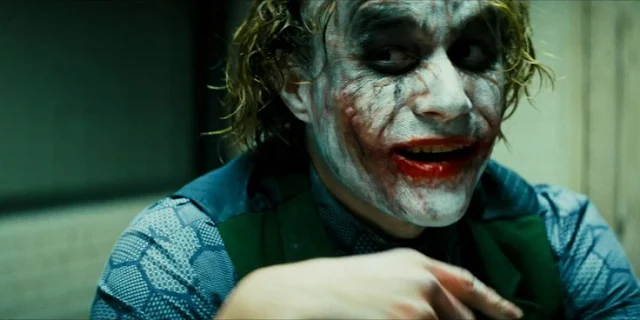 |
| Heath Ledger in The Dark Knight |
Joker: Heath Ledger
Harvey Dent: Aaron Eckhart
Alfred: Michael Caine
Rachel: Maggie Gyllenhaal
Lucius Fox: Morgan Freeman
Director: Christopher Nolan
Screenplay: Jonathan Nolan, Christopher Nolan, David S. Goyer
Cinematography: Wally Pfister
Production design: Nathan Crowley
Film editing: Lee Smith
Music: James Newton Howard, Hans Zimmer
I have never really understood the appeal of Batman, or really of Bruce Wayne: a superwealthy technocrat whose compulsive dressing up to hide his identity seems like silly bit of role-playing rather than an essential element of his superheroism. Moreover, he always seems to be outshone by his villainous adversaries, whose own dressing up is a manifestation of psychosis that eerily mirrors his own. So I'm not as enthusiastic as some are about the rebooting of the comic book hero as a dark knight, rather than the old TV series' campy avatar of the character. The best thing about The Dark Knight is clearly the re-imagining of the Joker and the superb performance by Heath Ledger. Otherwise, I found the usual slam-bang action rather tiresome.
Tuesday, August 29, 2017
Youth (Paolo Sorrentino, 2015)
 |
| Michael Caine and Harvey Keitel in Youth |
Mick Boyle: Harvey Keitel
Lena Ballinger: Rachel Weisz
Jimmy Tree: Paul Dano
Brenda Morel: Jane Fonda
Queen's Emissary: Alex McQueen
Julian: Ed Stoppard
Paloma Faith: Herself
Miss Universe: Madalina Diana Ghenea
Masseuse: Luna Zimic Mijovic
Sumi Jo: Herself
Director: Paolo Sorrentino
Screenplay: Paolo Sorrentino
Cinematography: Luca Bigazzi
Music: David Lang
 |
| Woody Allen |
Tuesday, November 15, 2016
Children of Men (Alfonso Cuarón, 2006)
 |
| Clive Owen in Children of Men |
Julian: Julianne Moore
Jasper: Michael Caine
Kee: Claire-Hope Ashitey
Luke: Chiwetel Ejiofor
Patric: Charlie Hunnam
Miriam: Pam Ferris
Syd: Peter Mullan
Nigel: Danny Huston
Marichka: Oana Pellea
Ian: Phaldut Sharma
Tomasz: Jacek Koman
Director: Alfonso Cuarón
Screenplay: Alfonso Cuarón, Timothy J. Sexton, David Arata, Mark Fergus, Hawk Ostby
Based on a novel by P.D. James
Cinematography: Emmanuel Lubezki
Production design: Jim Clay, Geoffrey Kirkland
Film editing: Alfonso Cuarón, Alex Rodríguez
Music: John Taverner
George Lucas did something shrewd when he prefaced his first Star Wars movie in 1977 with the phrase "A long time ago in a galaxy far, far away." Deliberately echoing the formulaic "Once upon a time," Lucas emphasized the fairy-tale essence of his science-fiction fable. But other creators of science fiction haven't been so careful, or perhaps have been more insouciant. George Orwell's 1984 was written in 1948, and all Orwell did was set the novel in a year that inverted the last two digits of the year of its completion. He wasn't presenting a literal forecast of actual life in the year 1984, he was serving as a prophet of what was actually present and nascent in his own time: totalitarianism and pervasive invasion of privacy. So 32 years later, we still find an uneasy resonance of Orwell's book in our own times. Similarly, when Stanley Kubrick and Arthur C. Clark teamed to write the screenplay for 2001: A Space Odyssey (Kubrick, 1968), they weren't necessarily predicting deep exploration of the solar system and encounters with mysterious monoliths -- though I rather suspect they were hoping for at least the first -- but rather speculating on the origins of human nature and consciousness and their relationship to artificial intelligence. Similarly, the dystopian world of Blade Runner (Ridley Scott, 1982), populated by replicants and traversed by flying cars, is supposedly set in 2019 -- a year now close at hand -- but is also centrally concerned with the nature of humanity in a corporate capitalist society. What I'm getting at is that sometimes science fiction writers and filmmakers distance themselves as Lucas does from any notion that they're commenting on the "real world," but sometimes embrace a specific foreseeable date, with a view to making either a prediction of the way things will evolve or a comment on the problems of their own day. This is why I find Alfonso Cuarón's Children of Men such a puzzling film. It gives us a dank dystopian London that resembles the dank dystopian Los Angeles of Blade Runner, and it sets it in a specific time, the year 2027, a world in which human beings stopped bearing children 18 years earlier: i.e., in the year 2009 -- only three years after the film was made. But unlike Blade Runner, it doesn't seem to be telling us anything specific about either a predicted future or the way we lived then. It's a very entertaining film, full of violent action and suspense, with some wizardly work by Oscar nominees cinematographer Emmanuel Lubezki and editors Cuarón and Alex Rodríguez. The way they handle the film's much-praised long-take sequences, aided by special effects to give the sense of complex action taking place in a single traveling shot, is exceptional -- anticipating Lubezki's work in making the entirety of Birdman (Alejandro González Iñárritu, 2014) seem to be a continuous take. There are also fine performances by Clive Owen, Julianne Moore, Chiwetel Ejiofor, Clare-Hope Ashitey, and the inevitably wonderful Michael Caine. But what is at the core of the film? Why does the failure of humankind to reproduce precipitate the worldwide cataclysm that the movie presents us? We have fretted so long about overpopulation that it would seem a blessing to have at least a pause in it, in which the world's scientists might take time to resolve the problem, or at least to discover the reason for the widespread infertility. Instead, we have a story that's largely about the mistreatment of immigrants. Why would non-reproducing immigrants, in a world with a declining population and therefore less pressure on natural resources, be a problem? Is it possible that this film, based on but radically altered from a novel by P.D. James, is promoting the extreme "pro-life" view, not only anti-abortion but also anti-contraception? Or is it simply that, as one character puts it, "a world without children's voices" is inevitably a terrible place? The film's failure to suggest a larger context for its action seems to me to by a weakness in an otherwise extraordinary film.


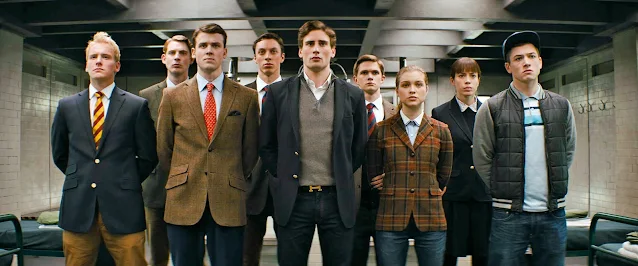


.jpeg)


